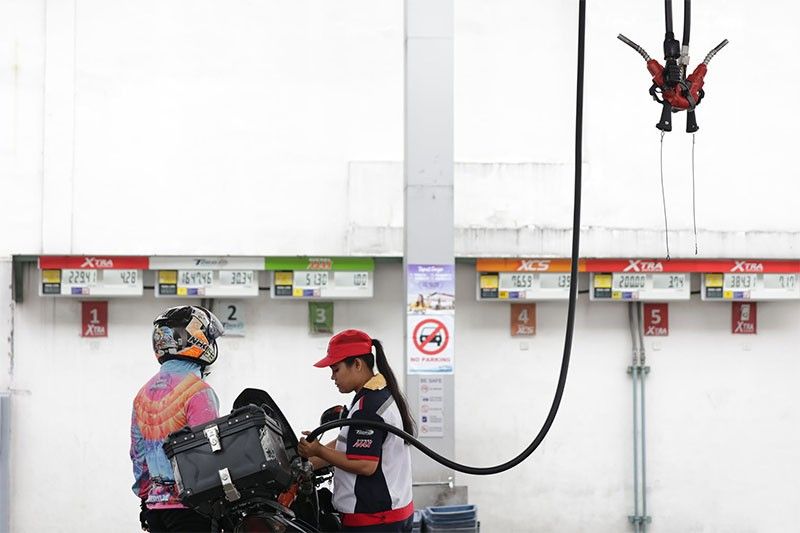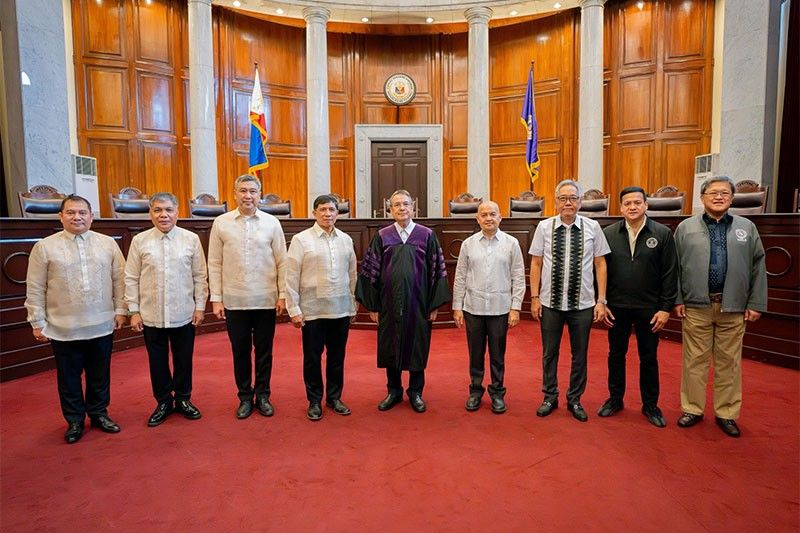
Upgrade to High-Speed Internet for only ₱1499/month!
Enjoy up to 100 Mbps fiber broadband, perfect for browsing, streaming, and gaming.
Visit Suniway.ph to learn
Janvic Mateo - The Philippine Star
April 4, 2025 | 12:00am
MANILA, Philippines — A majority of Filipino voters expect that vote buying will be prevalent in this year’s midterm elections, a survey conducted by the OCTA Research group showed.
The poll, conducted from Feb. 22 to 28, found that 66 percent of the respondents think that vote buying will be prevalent in the May elections. Only 34 percent think it will not be prevalent.
Expectations on the prevalence of vote buying were high across geographic areas and socioeconomic classes.
Asked about the impact of vote buying, 68 percent of the survey respondents said they expect it to negatively affect the outcome of the elections. The remaining 32 percent said they do not expect it to have a negative impact.
According to OCTA, the non-commissioned survey is part of its “broader investigation into how transactional electoral politics affects election integrity in the Philippines.”
“Preliminary findings reveal that a majority of Filipino voters perceive vote buying – a form of electoral malpractice—as still widespread, even in the age of automated elections.
“Moreover, most voters acknowledge that vote buying continues to undermine election outcomes,” the research firm said.
“By sharing these insights, OCTA Research aims to highlight the ongoing threat that vote buying and selling pose, not just to electoral integrity but to democracy itself. The goal is to spark dialogue and encourage collective action among stakeholders. OCTA Research believes addressing this issue is essential to ensuring fair elections and safeguarding democracy,” it added.
The Commission on Elections (Comelec) has created a task force to address the issue of vote buying and other election malpractices.
The OCTA poll had 1,200 respondents and a margin of error of plus/minus three percent.
SC urged to halt internet voting
Political party PDP-Laban has asked the Supreme Court (SC) to halt internet voting for overseas Filipinos in the May 12 midterm polls.
Members of the political party filed a petition for certiorari and prohibition and mandamus, with a prayer for a temporary restraining order (TRO) and a writ of preliminary injunction, which sought to prevent the Comelec from enforcing its resolution on online voting.
They challenged the implementation of remote online voting for overseas voters and the automated counting of votes.
In their petition for prohibition and mandamus with an urgent prayer for a TRO and writ of preliminary injunction, PDP-Laban and other petitioners challenged the implementation of remote online voting for overseas voters and the automated counting of votes.
In a statement, petitioners said their “major contention is the automated counting of votes,” which supposedly violates Section 31 of the Election Automation Law. They argued that the law “mandates manual counting of ballots at the precinct level.”
The petitioners added that online voting for overseas Filipinos should not have been introduced as digital ballots “are not authorized by existing laws.”
The petition seeks a writ of mandamus to compel Comelec to follow legal procedures as mandated under Republic Act 10590 and RA 9369.
The petition was filed by PDP-Laban vice chairman Alfonso Cusi, lawyer Israelito Torreon, as well as Senate bets and lawyers Raul Lambino, Jimmy Bondoc and Vic Rodriguez. The petitioners also include Glenn Chong and other overseas Filipinos.
Meanwhile, the Comelec said it will continue to prepare for the conduct of the first-ever internet voting despite the petition seeking to halt it.
“Of course, we are continuing our preparations for internet voting. It was warmly welcomed by our kababayans abroad and our embassies and consulates worldwide,” Comelec Chairman George Garcia said.
“As of now, the Comelec will proceed with internet voting in 77 posts abroad,” Garcia added, noting that over 16,000 Filipinos abroad have already enrolled for the internet voting system, which the Comelec is set to conduct starting April 13.
Garcia said the poll body has long been expecting a petition questioning the legality of internet voting to be filed before the high court. He said the Comelec is ready to answer the petition filed by PDP-Laban.
Garcia explained that the amended Overseas Voting Act allows the Comelec to venture into other modes of voting. He further pointed out that the Comelec conducted a proper consultation, and there was no violent objection to it. If the Supreme Court comes out with an order, Garcia said, the Comelec is ready and prepared.
According to Garcia, the Comelec has an excess of 16,000 automated counting machines, which they can deploy in the 93 posts set to hold internet voting. The Comelec can also easily order the printing of the required ballots in case the high court stops internet voting. – Mayen Jaymalin, Daphne Galvez

 2 months ago
27
2 months ago
27



